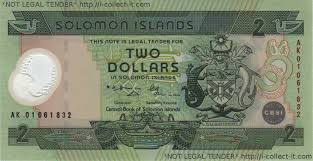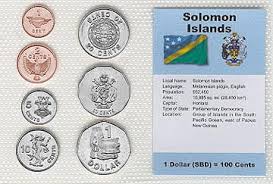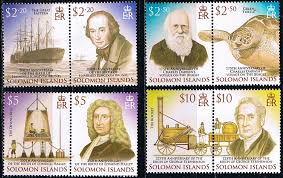Most 13C NMR spectra are very complex. The methyl carbon of an ethoxy group will appear as a large quartet, with each line further split into triplets. Even in fairly simple molecules each carbon may be coupled to a number of different protons. In complicated molecules, these multiplets overlap badly, and may be impossible to analyze.
1JCH = 100-250 Hz
2,3JCH = 2-10 Hz
2,3JCH = 2-10 Hz
To simplify 13C spectra, we usually use some form of broadband decoupling (noise decoupling) to remove the effect of proton couplings. This also dramatically increases signal intensity, since now all carbons appear as singlets (assuming absence of other spin 1/2 nuclei like 31P or 19F). The increase is actually greater by a factor of 2-3 than would be predicted on the basis of simply combining the 13C multiplet intensities because the Nuclear Overhauser Effect causes additional increases in signal intensity.
Figure 75.4 MHz 13C NMR spectrum of isobutyrophenone in CDCl3. Identify all of the C-H couplings in the expansions of the coupled spectrum. Assume the coupling within the aromatic ring follow those given for benzene itself. Note that the very closely spaced ortho and meta carbons can be assigned based on the 3JCH couiplings observed.
Figure 25 MHz 13C NMR spectrum of diphenyl selenide in CDCl3.
Figure shows the fully coupled and decoupled 13C NMR spectra of diphenyl selenide. Although the large 1JC-H splittings are easy to identify, the fine structure of the individual multiplets is not first order (e.g., only the para carbon has an approximately centrosymmetric pattern, the others do not). This is because we are looking at the X part of an AA'BB'CXpattern (^JABC^j are protons, X is carbon). Since the AA' and BB' parts are strongly coupled, we see the usual complex effects of "virtual coupling" on the X resonance. When noise {1H} decoupling is applied, the spectrum becomes much more intense, and only 4 lines remain, one for each carbon.
In this compound we have a second magnetically active nucleus (77Se, natural abundance 7.5%, I = 1/2), so each of the 13C peaks has 77Se satellites, although coupling between C-4 and the selenium is too small to detect (the satellites are under the main peak).
Take a tour
SOLOMON ISLANDS



HONIARA





Malaita, Solomon Islands …






 .
.




 .
.
Gizo, on Ghizo Island, is the capital of the Solomon Islands’ far-flung Western Province, a paradise of coral cays, atolls, lagoons and volcanic islands east of Papua New Guinea where, on a rainy day in late July, crowds flocked to the local netball court for the opening of the inaugural Akuila Talasasa Arts Festival.
 Motorised canoes lined up in Gizo Harbour near the daily marketplace.
Motorised canoes lined up in Gizo Harbour near the daily marketplace.






 .
.









/////////
 DRUG APPROVALS BY DR ANTHONY MELVIN CRASTO
DRUG APPROVALS BY DR ANTHONY MELVIN CRASTO
http://newdrugapprovals.org/
Take a tour
SOLOMON ISLANDS
HONIARA
Malaita, Solomon Islands …
Gizo, on Ghizo Island, is the capital of the Solomon Islands’ far-flung Western Province, a paradise of coral cays, atolls, lagoons and volcanic islands east of Papua New Guinea where, on a rainy day in late July, crowds flocked to the local netball court for the opening of the inaugural Akuila Talasasa Arts Festival.
/////////
http://newdrugapprovals.org/
No comments:
Post a Comment